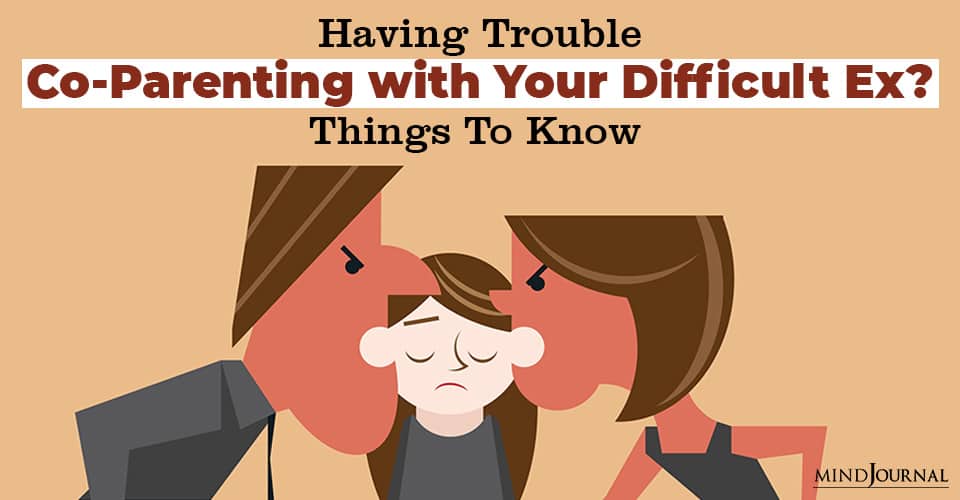When you are co-parenting with your difficult ex, things can get ugly and undesirable at times. But as parents, both of you should keep in mind that your child should always come first for you.
Co-parenting with your former spouse is about the children, not about the parents…ideally!
Children need to know–and feel–they are more important than the conflict that is, or was, between their parents. Maintaining that is what effective, conscious co-parenting is all about.
Co-parenting well provides stability for the child while allowing the child to maintain close relationships with both parents.
Co-parenting well also eliminates exposing the child or children to adult relationship issues beyond the fact that mom and dad choose to live apart now.
They have enough “child” issues to contend with, such as moving, losing time with their friends, missing the non-custodial parent, uncertainty about what happened, and not having the right toys or things at the right house.
They are kid concerns. They do NOT and SHOULD NOT be hearing about adult issues. They should NEVER her one parent say anything negative about the other!
Related: 9 Tips For Co-Parenting With Your Difficult Ex
Whether or not you would agree that you actually choose to live apart, the reality is that is what you are doing. Not engaging your child or children in the conflict between you and your former spouse is of paramount importance. That may not be easy, and, in some cases, may not seem possible.
WHY?
Because you and your ex may be experiencing one of two broad and opposite positions about your views of each other as people and parents that definitely change your approaches to co-parenting, AND its success for your children.
You may be in one or the other of these opposite positions, or somewhere in between:
1. You believe that your ex is a good person, a worthwhile person who has valuable things to contribute to your child’s life and has the best interest of the child at heart. Dad and son are in the studio.
OR
2. You believe that your ex is a poor parent, a poor role model, and/or has personality or substance problems, anger issues, or other traits that you believe could possibly damage your child with too much, or any, exposure. You may also believe that your ex is more interested in hurting you than providing the best circumstances for the child or children.
Of course, there is much space in the middle ground!
Where are you on this co-parenting continuum…usually?
Yes, there are some days, I know. But, it is your general, usual approach that creates the relationship you have with your former spouse. and therefore, the climate for conscious co-parenting.
This is important information for you to be honest about within yourself. Once you are honest with yourself, you can begin the internal work that will form the basis of a wise, thoughtful co-parenting plan that is truly in the best interests of the child or children.
I hope you want to co-parent thoughtfully, consciously, and considerately. AND, with each parent demonstrating that they have the best interests of the child or children at heart!
Related: Conscious Parenting: The Art Of Raising Happy Children
No matter what your ex does, always do what you know is in the best interests of the children. This is not the place to continue the fight with an ex.
This is your children’s lives you are shaping. Right now, you are teaching them how to be. AND, you are their prime role model!
© Rhoberta Shaler, Ph.D. If you would like more help from Dr. Shaler, subscribe to her weekly Tips for Relationships, and listen to her Relationship Help Show every Wednesday at 11 am Pacific. She’s here to help you with small group consulting and private sessions. Start with a free consult. Talk soon!
Written by Rhoberta Shaler, PhD











Leave a Reply